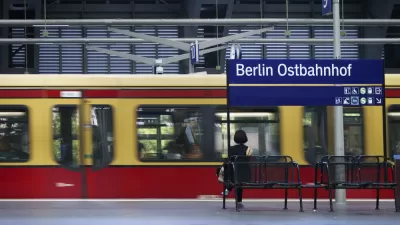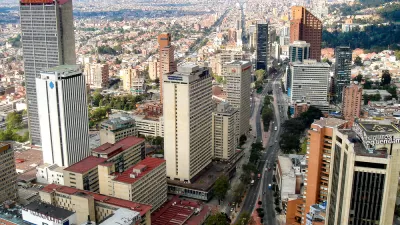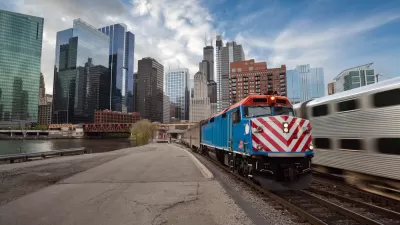Traffic is a nightmare in Cali, Colombia, the Latin American country's third-largest city. But a massive redesign is taking place, with German transit efficiency guiding the way.
"Cali has around 2.5 million inhabitants, making it Colombia's third biggest city. And it is a city on the verge of transportation collapse. The city's traffic resembles barely controlled chaos and the mass transit system just makes things worse. The buses stop abruptly any time passengers on the side of the road stick out their arms. The vehicles, most of which have seen better days, often break down and are then repaired in the middle of the street, infuriating other drivers. The air is usually thick with exhaust."
"Now an ambitious new project aims to wake the city up from its traffic nightmare. And German engineers like Ernst Denert are playing a crucial role in the effort. Denert, along with his software firm IVU Traffic Technologies, is completely rebuilding Cali's public transport system. The Berlin-based company has taken on the task of setting up a punctual transport system in one of the most chaotic cities in Latin America."
"Germany, of course, is famous for its punctuality, with buses and trains -- at least in the popular imagination -- arriving exactly when they are supposed to. Once completed, the IVU system hopes to do the same for Cali's fleet of a thousand buses. The IVU software in the control center and on the buses will allow for smooth communication between the control centers, the buses and their drivers."
"One new detail at the bus stops could well cause a minor sensation: Bus departure times are to be on display. Passengers will also be able to check out information about routes and connections on the Internet."
FULL STORY: Germany Exports Punctuality to Colombia

Manufactured Crisis: Losing the Nation’s Largest Source of Unsubsidized Affordable Housing
Manufactured housing communities have long been an affordable housing option for millions of people living in the U.S., but that affordability is disappearing rapidly. How did we get here?

Americans May Be Stuck — But Why?
Americans are moving a lot less than they once did, and that is a problem. While Yoni Applebaum, in his highly-publicized article Stuck, gets the reasons badly wrong, it's still important to ask: why are we moving so much less than before?

Research Shows More Roads = More Driving
A national study shows, once again, that increasing road supply induces additional vehicle travel, particularly over the long run.

Judge Halts Enforcement of Anti-Homeless Laws in Grants Pass
The Oregon city will be barred from enforcing two ordinances that prosecute unhoused residents until it increases capacity and accessibility at designated camping sites.

Advancing Sustainability in Los Angeles County Schools
The Los Angeles County Office of Education’s Green Schools Symposium brings together educators, students, and experts to advance sustainability in schools through innovative design, climate resilience strategies, and collaborative learning.

Using Old Oil and Gas Wells for Green Energy Storage
Penn State researchers have found that repurposing abandoned oil and gas wells for geothermal-assisted compressed-air energy storage can boost efficiency, reduce environmental risks, and support clean energy and job transitions.
Urban Design for Planners 1: Software Tools
This six-course series explores essential urban design concepts using open source software and equips planners with the tools they need to participate fully in the urban design process.
Planning for Universal Design
Learn the tools for implementing Universal Design in planning regulations.
City of Moreno Valley
Institute for Housing and Urban Development Studies (IHS)
City of Grandview
Harvard GSD Executive Education
NYU Wagner Graduate School of Public Service
City of Cambridge, Maryland
Newport County Development Council: Connect Greater Newport





























